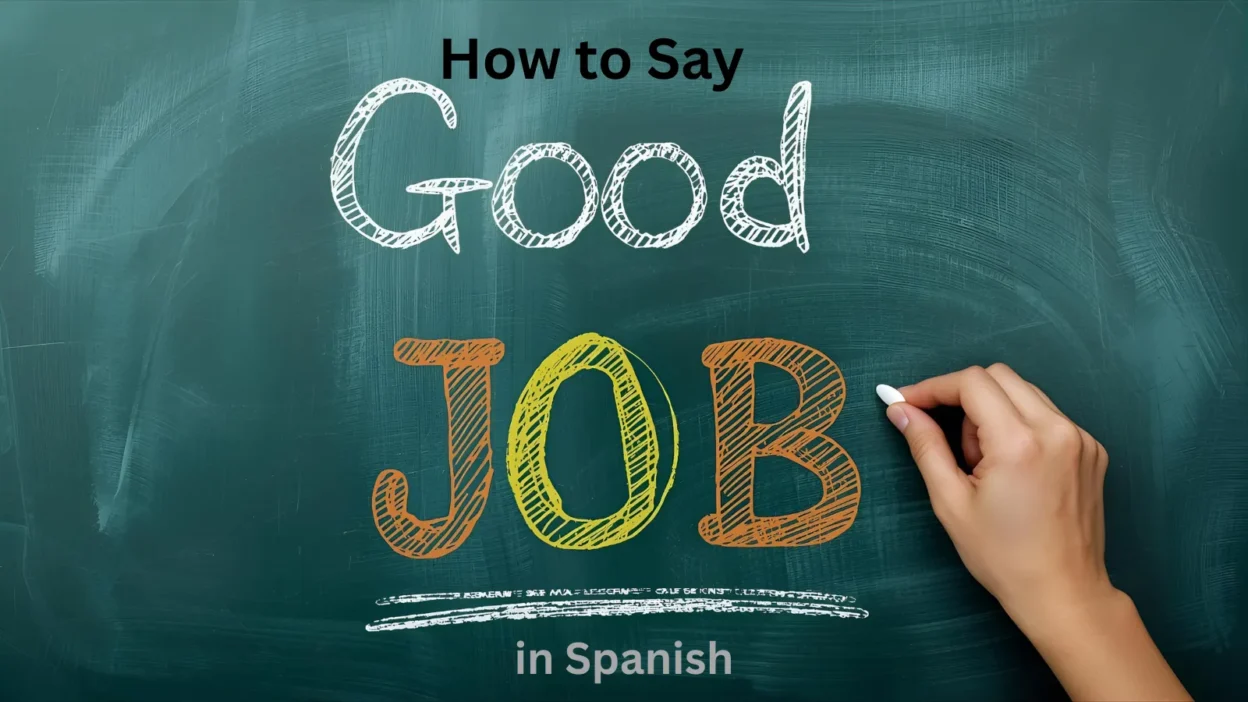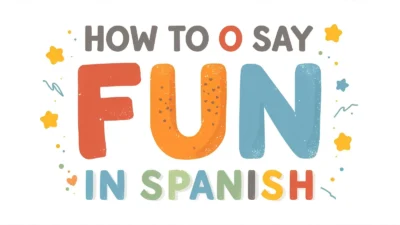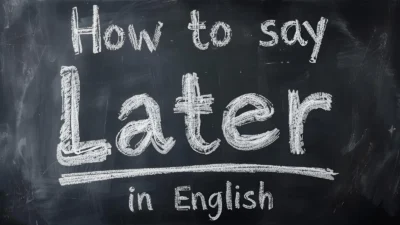“Good job” in Spanish is commonly expressed as “¡Buen trabajo!” or “¡Bien hecho!” Both phrases are used to praise someone for their effort or achievement, with “¡Buen trabajo!” being more casual and “¡Bien hecho!” slightly more formal.
Many users search for how to say good job in Spanish to encourage friends, colleagues, students, or family members. The user intent is clear: they want easy-to-use phrases that convey praise naturally and positively in everyday situations.
In this guide, you will learn the most common ways to say “good job” in Spanish, when to use each expression, and pronunciation tips. These beginner-friendly explanations help you motivate others respectfully and confidently in Spanish.
Say Good Job in Spanish
Let’s explore 15 authentic Spanish phrases to say “good job,” complete with their meanings, origins, real-life examples, and usage tips.
1. ¡Buen trabajo! – “Good job!”

Origin:
Literally means “good work.” One of the most common and polite ways to praise someone in Spanish.
Example:
👤 A: ¡Buen trabajo en la presentación!
👤 B: Gracias, me alegra que te haya gustado.
Use: Universal and suitable for both formal and casual settings.
2. ¡Bien hecho! – “Well done!”
Origin:
Translates directly as “well done.” It focuses on the result rather than the effort.
Example:
👤 A: ¡Bien hecho, ganaste el concurso!
👤 B: ¡Gracias, fue difícil pero lo logré!
Use: Common in schools, sports, and workplaces.
3. ¡Excelente trabajo! – “Excellent job!”

Origin:
From excelente (excellent) and trabajo (work).
Example:
👤 A: ¡Excelente trabajo en ese proyecto!
👤 B: Aprecio tus palabras, gracias.
Use: Formal and professional praise, ideal for work or academic settings.
4. ¡Muy bien! – “Very good!”
Origin:
Simple phrase combining muy (very) and bien (good).
Example:
👤 A: ¡Muy bien, lo hiciste perfecto!
👤 B: ¡Gracias por el apoyo!
Use: Often used by teachers, coaches, and parents.
5. ¡Genial! – “Great!”

Origin:
From genius or ingenious, expressing amazement.
Example:
👤 A: Terminé el informe.
👤 B: ¡Genial! Sabía que podías hacerlo.
Use: Informal; used among friends or coworkers.
6. ¡Fantástico! – “Fantastic!”
Origin:
Borrowed from Latin phantasticus, meaning wonderful or imaginative.
Example:
👤 A: Ganamos el partido.
👤 B: ¡Fantástico, felicidades!
Use: Energetic and encouraging, perfect for celebrations.
7. ¡Increíble trabajo! – “Incredible work!”
Origin:
From increíble (incredible), emphasizing excellence.
Example:
👤 A: Terminé el diseño final.
👤 B: ¡Increíble trabajo, se ve impresionante!
Use: Friendly, enthusiastic praise for creative efforts.
8. ¡Qué bien! – “How nice!”

Origin:
An exclamation that expresses delight and approval.
Example:
👤 A: Saqué una buena nota.
👤 B: ¡Qué bien! Sabía que podrías hacerlo.
Use: Informal, conversational tone.
9. ¡Lo hiciste muy bien! – “You did great!”
Origin:
From hacer (to do). Literally means “You did it very well.”
Example:
👤 A: Terminé mi tarea.
👤 B: ¡Lo hiciste muy bien, sigue así!
Use: Personal and encouraging; often used by mentors or parents.
10. ¡Eres increíble! – “You’re amazing!”
Origin:
Personalized form of praise focusing on the individual.
Example:
👤 A: Gané la competencia.
👤 B: ¡Eres increíble, felicidades!
Use: Emotional and warm, used with friends and loved ones.
11. ¡Has hecho un gran trabajo! – “You’ve done a great job!”
Origin:
Perfect tense form of hacer (to do), meaning ongoing appreciation.
Example:
👤 A: Terminamos el proyecto.
👤 B: ¡Has hecho un gran trabajo, gracias por tu esfuerzo!
Use: Professional and polite.
12. ¡Te superaste! – “You outdid yourself!”
Origin:
From superar (to surpass).
Example:
👤 A: Mira mi nueva pintura.
👤 B: ¡Te superaste, está hermosa!
Use: Warm and encouraging; shows admiration.
13. ¡Buen trabajo, equipo! – “Good job, team!”
Origin:
Common phrase in workplaces and sports.
Example:
👤 A: Terminamos el proyecto antes de tiempo.
👤 B: ¡Buen trabajo, equipo!
Use: Motivating phrase for groups or teams.
14. ¡Sigue así! – “Keep it up!”
Origin:
From seguir (to continue).
Example:
👤 A: Estoy mejorando mis calificaciones.
👤 B: ¡Sigue así, vas muy bien!
Use: Encouragement for ongoing progress.
15. ¡Orgulloso de ti! – “Proud of you!”
Origin:
From orgullo (pride), expressing emotional encouragement.
Example:
👤 A: Logré mi meta.
👤 B: ¡Orgulloso de ti, sabía que podrías hacerlo!
Use: Emotional and supportive; used with friends, family, or students.
FAQs:
1. What is the most common way to say “good job” in Spanish?
The most common phrase is “¡Buen trabajo!”, suitable for almost any situation.
2. How do you say “well done” in Spanish?
Use “¡Bien hecho!” — one of the most popular Spanish phrases for praise.
3. What’s a casual way to say “nice work” in Spanish?
Try “¡Qué bien!” or “¡Genial!” for a relaxed, friendly tone.
4. How can I compliment someone politely in Spanish?
Use “Excelente trabajo” or “Has hecho un gran esfuerzo.” These are polite compliments in Spanish.
5. What are some encouraging words in Spanish?
Common ones include “Sigue así” (Keep it up) and “Tú puedes” (You can do it).
6. Is there a difference between “Buen trabajo” and “Bien hecho”?
Yes. Buen trabajo = focuses on effort; Bien hecho = focuses on results.
7. How do you say “You did great” in Spanish?
Say “Lo hiciste muy bien” or “Hiciste un gran trabajo.”
8. What’s a good way to praise a team in Spanish?
Say “¡Buen trabajo, equipo!” or “Excelente esfuerzo de todos.”
9. How can I motivate someone in Spanish?
Use phrases like “Sigue adelante” (Keep going) and “Confío en ti” (I believe in you).
10. Why should I learn how to say “good job” in Spanish?
Because using ways to say good job in Spanish helps you connect, encourage, and show respect across cultures.
Conclusion:
Knowing how to say good job in Spanish helps you express encouragement, support, and positivity in any situation. The phrase “buen trabajo” and its variations are perfect for praising someone’s effort or success. Using these words shows kindness, confidence, and cultural understanding. Whether you’re speaking with friends, colleagues, or students, a simple compliment in Spanish can make someone’s day and strengthen your connection.



